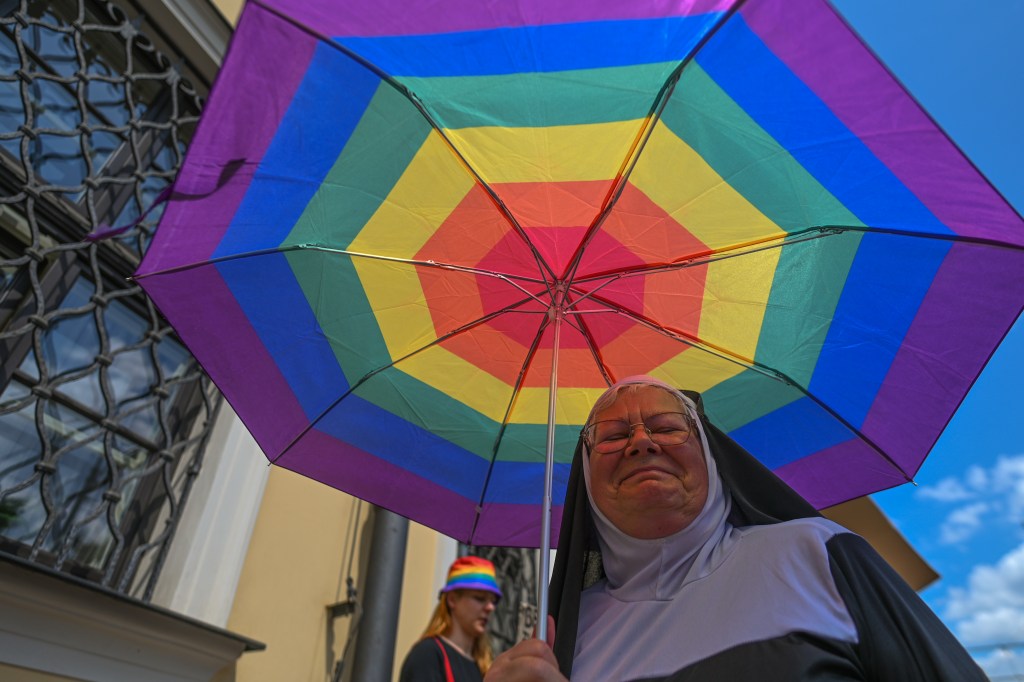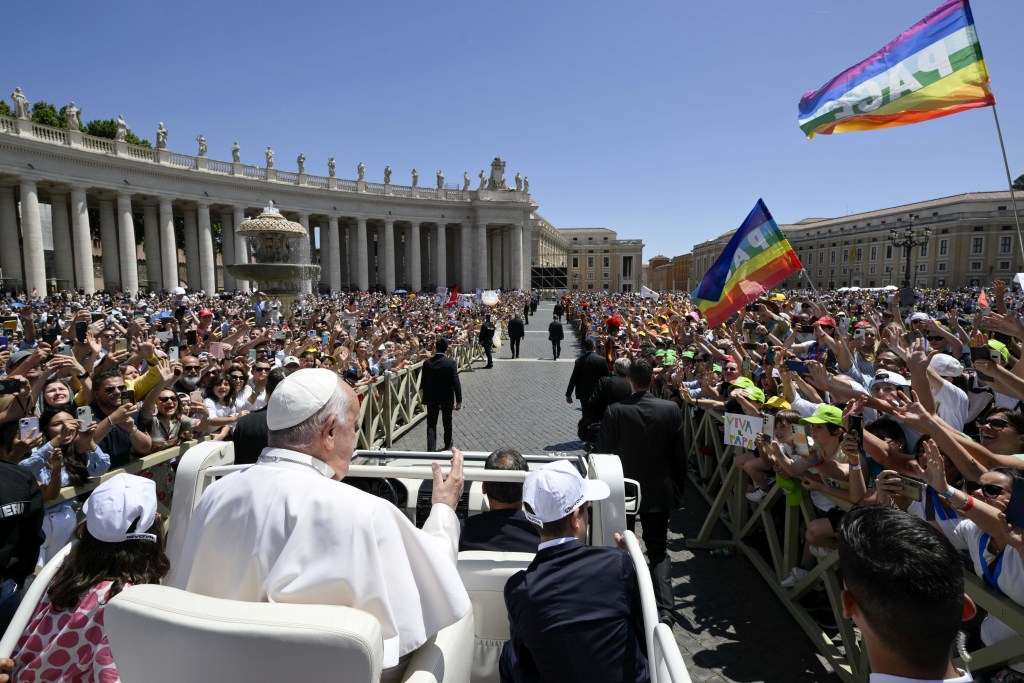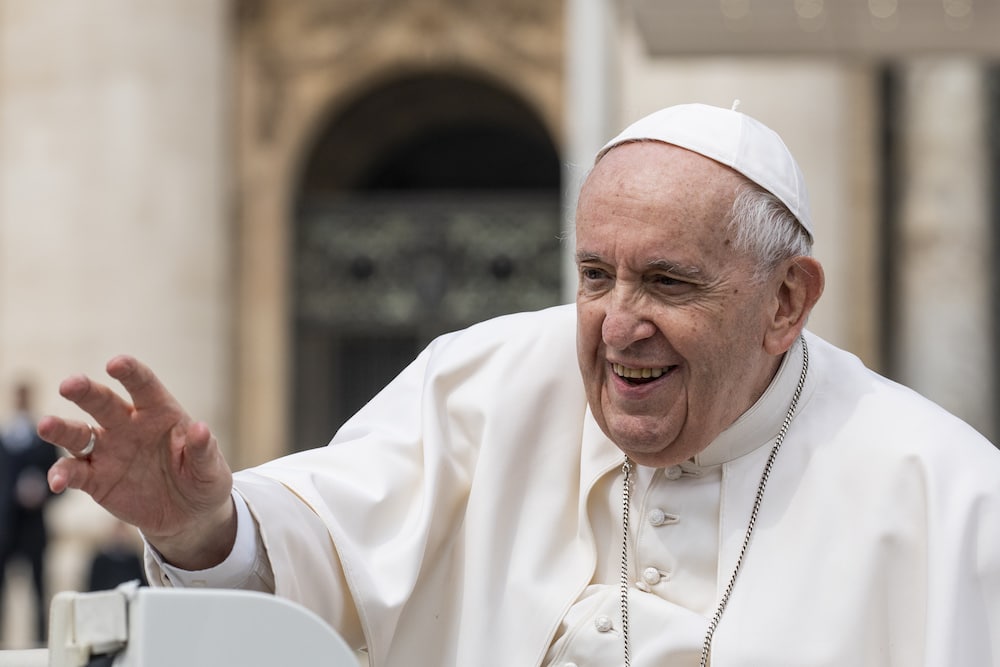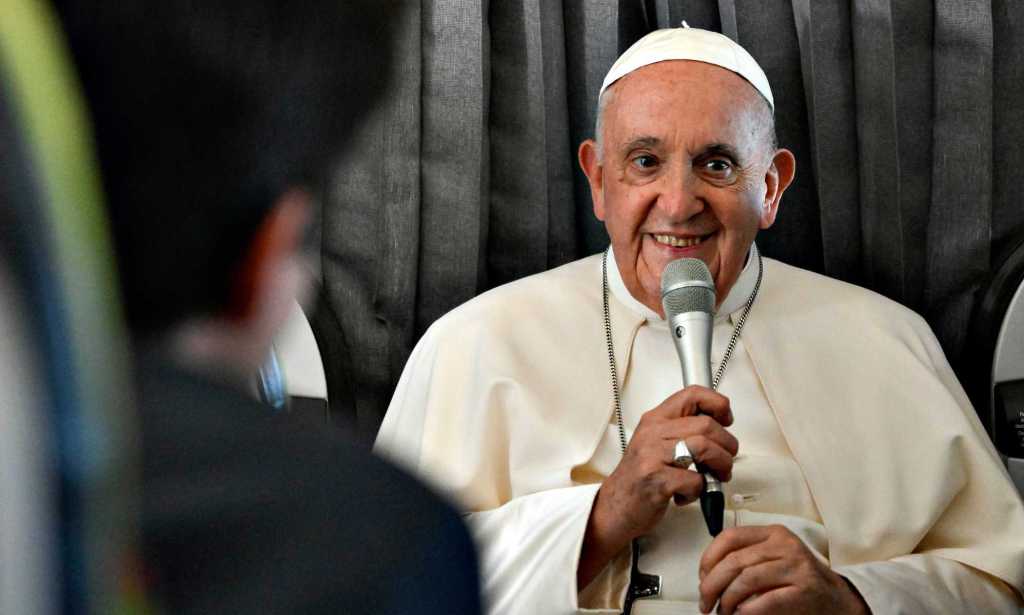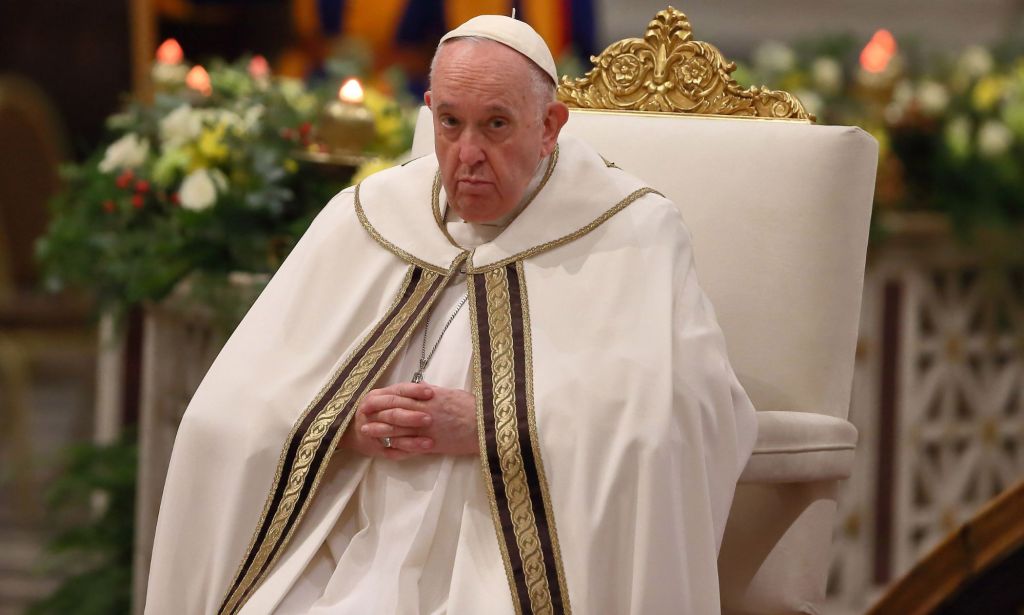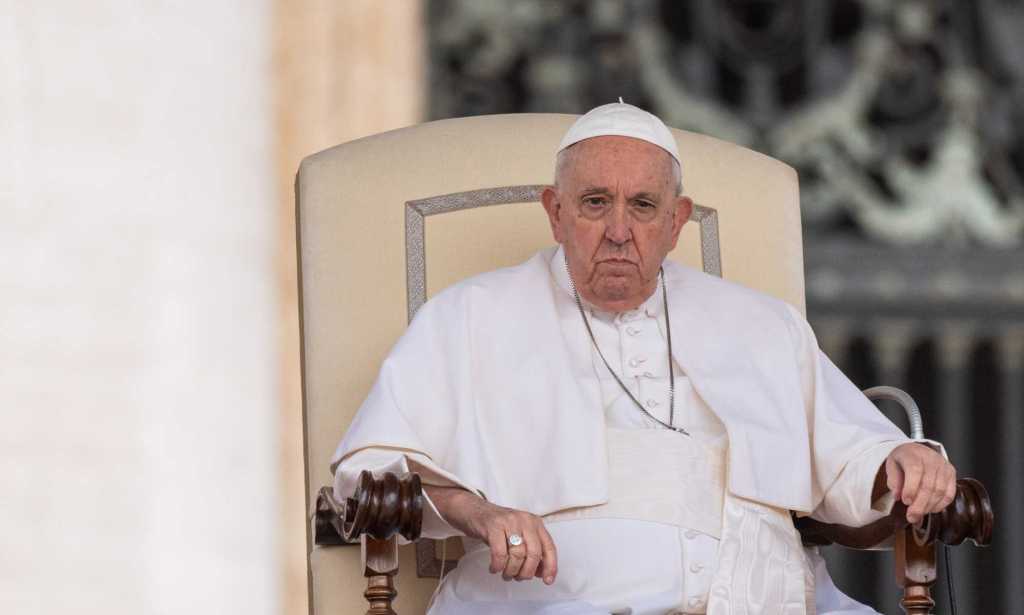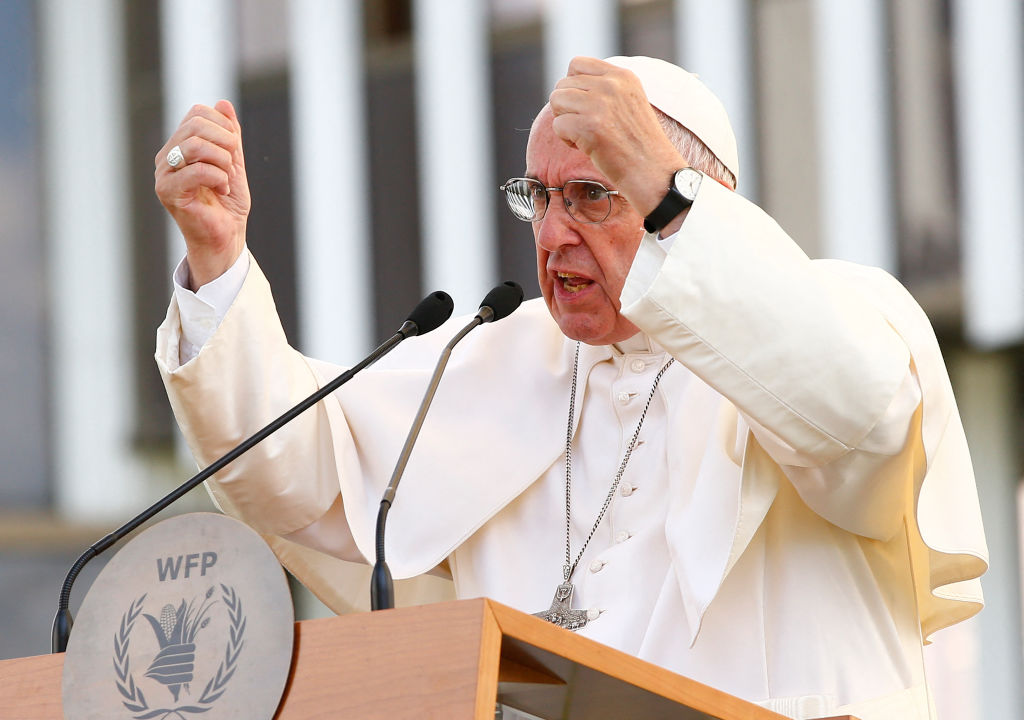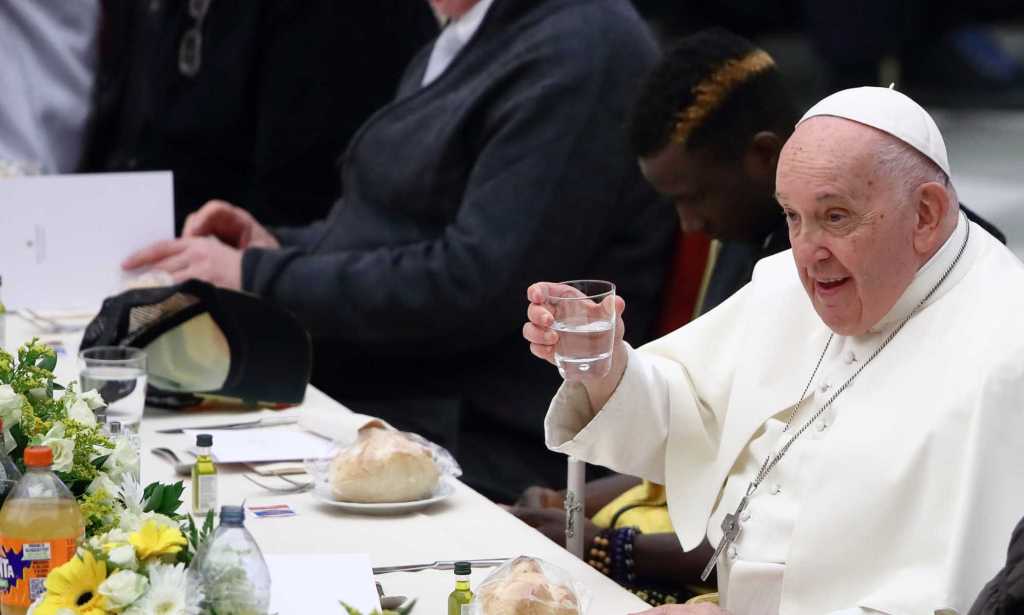— Gay priests reflect on pope’s use of homophobic slur

by Katie Collins Scott
Fr. Bryan Massingale first admitted to himself he was gay at age 22 but came out many years later as a priest after hearing stories of LGBTQ Catholics from regions of the world where people face imprisonment, torture and death because of their sexuality.
He’d listened to delegates living in fear of such realities while attending a 2019 meeting of the Global Network of Rainbow Catholics, a coalition of organizations from multiple continents.
“I knew I couldn’t ask them to continue to do their difficult, courageous and heroic work without taking a risk myself,” Massingale, a theologian at Fordham University in New York, told NCR. “I was moved to make a public declaration on my sexuality as a way of saying I need to also be willing to take a risk for a better church.”
The priest said the work needed to build up a better church was on his mind following the news that Pope Francis reportedly used a derogatory term when referring to gay men.
“I was shocked and saddened that a pope would speak this way,” said Massingale. “Because if what he said was true, this went beyond simply reaffirming traditional beliefs about sexuality and was an insult. Sexual slurs dehumanize people and are a denigration of my humanity and of the humanity of other sexual minorities.”

Italian media quoted unnamed bishops who claimed that amid a closed-door meeting with the Italian bishops’ conference May 20, the pope, as he strongly reaffirmed the Catholic Church’s prohibition on gay men entering seminaries or being ordained priests, jokingly said, “there is already an air of faggotness” in seminaries. After a flurry of news and negative reactions, the Vatican issued an apology May 28.
“The pope never intended to offend or express himself in homophobic terms, and he extends his apologies to those who were offended by the use of a term that was reported by others,” said Vatican spokesperson Matteo Bruni, who did not confirm or deny that Francis had used the term.
The alleged slur was most personal for gay priests, and in the days following the media firestorm, Massingale and Fr. Greg Greiten, a pastor in Milwaukee, Wisconsin, described their thoughts and emotions about it — and about the gifts and pain of being an openly gay priest.
There is research that indicates around 30-40% of U.S. clergy are gay. Some say it’s a much higher percentage, with the majority choosing not to share their sexual orientation publicly.
Greiten came out to parishioners in 2017 during a homily, saying at the time he no longer wanted to live “in the shadow of secrecy.”
“I wanted and needed to be honest and authentic about who I am,” he told NCR in an interview May 29.
The immediate reaction to Greiten’s disclosure was a standing ovation, with one parishioner saying after Mass she “could care less” and loved him “for the person he is.”
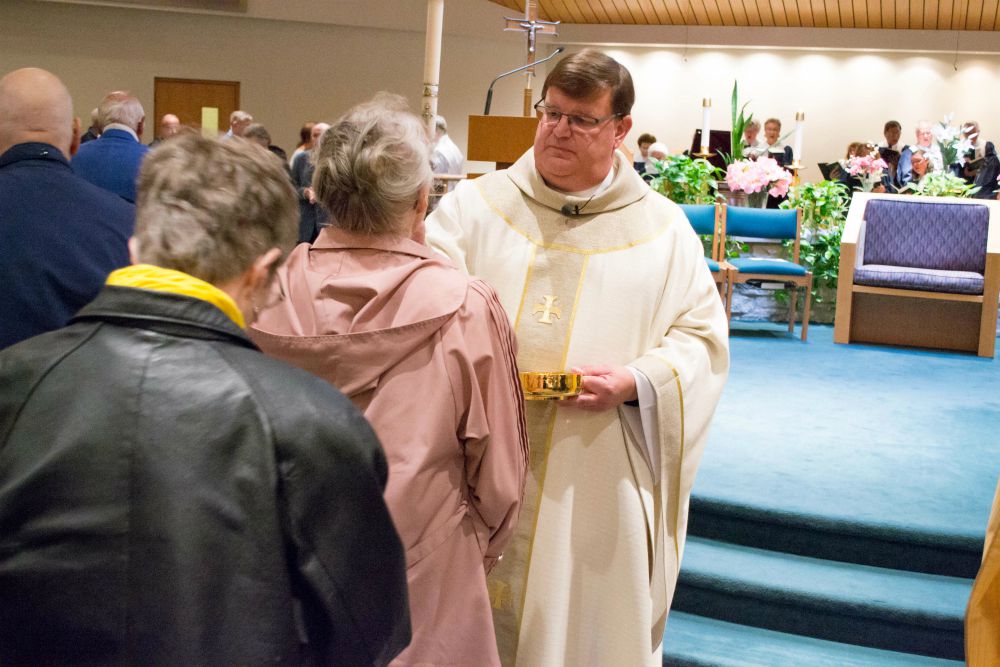
For Massingale, too, responses from “those in the pews were absolutely, overwhelmingly supportive.”
The negative repercussions came from church officials, including bishops, the priests said.
Massingale recalled at least two occasions where, on account of being openly gay, a bishop told him he could not give a talk in his diocese and said several times he’d been disinvited from delivering an address. In one case he was not allowed to speak at a local seminary.
“How it was reported to me was the bishop was concerned that it would be giving a bad example to seminarians,” said Massingale.
‘I was shocked and saddened that a pope would speak this way. Because if what he said was true, this went beyond simply reaffirming traditional beliefs about sexuality and was an insult.’
—Fr. Bryan Massingale
Greiten said the biggest fear for him was always local church leadership. “In other places people have been removed for being public about their sexual identity, and I know gay priests who’ve gone into deep depression because a bishop was so horrible to them,” he said. “I was worried but I was ready because I wasn’t lying anymore.”
Greiten said he has not felt accepted or supported by Milwaukee Archbishop Jerome Listecki — who in 2022 issued a sweeping policy on so-called gender theory — but the priest declined to share specifics on record so as not to jeopardize his ministry position.
“Speaking up and being open in the context of the church has its consequences,” he said.
In 2016, Fr. Warren Hall was banned from ministry by then-Archbishop John Myers of Newark, New Jersey. The archbishop claimed it was due to the priest’s advocacy work; Hall said it was because he was gay.
Massingale and Greiten both told NCR they appreciated the pope’s apology following his reported slur.
“I accept the fact that he did not intend to speak maliciously,” but it is important to draw a distinction between “the intent of this word and the impact of this word,” said Massingale. “And the impact of this word can only be negative.”
‘Speaking up and being open in the context of the church has its consequences.’
—Fr. Greg Greiten
The vice president of the Italian bishops’ conference said the pope’s comments were taken out of context and that Francis “is not homophobic and never was.” Vatican reporters also noted Italian is not the Argentine pope’s first language and that he regularly uses slang and speaks informally.
Greiten said the pope “is a very smart individual” and thinks it’s unlikely he didn’t understand the word fully or how he used it in a particular context.
It is language that ultimately reinforces “the horrific attitudes, stereotypes and discrimination directed toward the LGBTQ community from the hierarchy in the Catholic Church,” he said. “It is never OK. It is never a joke.”
Greiten added that it is “extremely painful and hurtful” for LGBTQ individuals like himself, “who have been on the receiving end of these offensive comments and attitudes for years while growing up.”
The pope previously has affirmed the church’s ban on gay men in seminaries, although the head of the bishops’ conference denied that in the May meeting Francis gave an absolute “no” on gay men entering seminary.

Early in his papacy Francis’ famous “Who am I to judge?” statement was in regard to the sexual orientation of priests and marked a decided shift in the Vatican’s discussion of LGBTQ individuals.
Massingale told NCR the recent episode with the pope shows the need for a frank discussion about gay men in the priesthood.
“It is a fact there are now and have always been many, many gay men who have served the church as priests and bishops faithfully, generously and well,” he said. “So I think we need to have an honest conversation about where this fear and suspicion of homosexuality in the priesthood is coming from.”
The bans on gay individuals in the seminary and in the priesthood are not working, “they are not effective,” said Massingale. “The only thing it’s doing is driving people to be dishonest in the process of seminary formation. That is not healthy for the young men in formation or healthy for the church.”
Greiten agreed. The emphasis on silence around sexuality means seminarians “are not fostering integrity in their formation,” he said, adding that in his own life the secrecy was destructive.
Both Greiten and Massingale said they believe there is a fear and a mistaken belief that gay men are less capable of honoring the vow of celibacy than straight men.
“Show me the studies that are going to back up that belief,” said Greiten. “It’s not true.”
“Of course gay men and straight men can be a cause of scandal in the church when they fail to live up to their obligations,” Massingale said. “But that’s not about sexual orientation.”
If there’s a need to speak about priests leading holy, authentic lives versus those leading double lives, “that’s great, let’s have that conversation,” said Greiten. “But that’s a different issue than someone just being a gay candidate.”
In terms of the lasting impact of the pope’s word choice, a lot will depend on what occurs going forward, according to Massingale, who hopes the pope, “who has demonstrated a historic openness to the LGBTQ community,” will meet with gay men who are priests.
“So in that way the pope can know our trials and our joy, our struggles, and our hopes and dreams,” he said. “I think in that way we can move from this very unfortunate incident and make it an occasion of grace and an occasion of healing.”
Massingale also affirmed the ongoing work of the church.
“My belief is that this is all part of the birth pain of a new church coming to be,” he said. “Every church body that is moved to a more accepting or more open attitude for sexual minorities has gone through a messy and confusing period of turmoil.”
Massingale listed the Lutheran, Episcopal, Presbyterian and Methodist churches as examples.
“In all those churches, gay clergy have been at times attacked and maligned,” he said. “Yet that was also part of the process by which the church came to a deeper understanding of human sexuality and of the truth of the Gospel.”
Complete Article ↪HERE↩!



